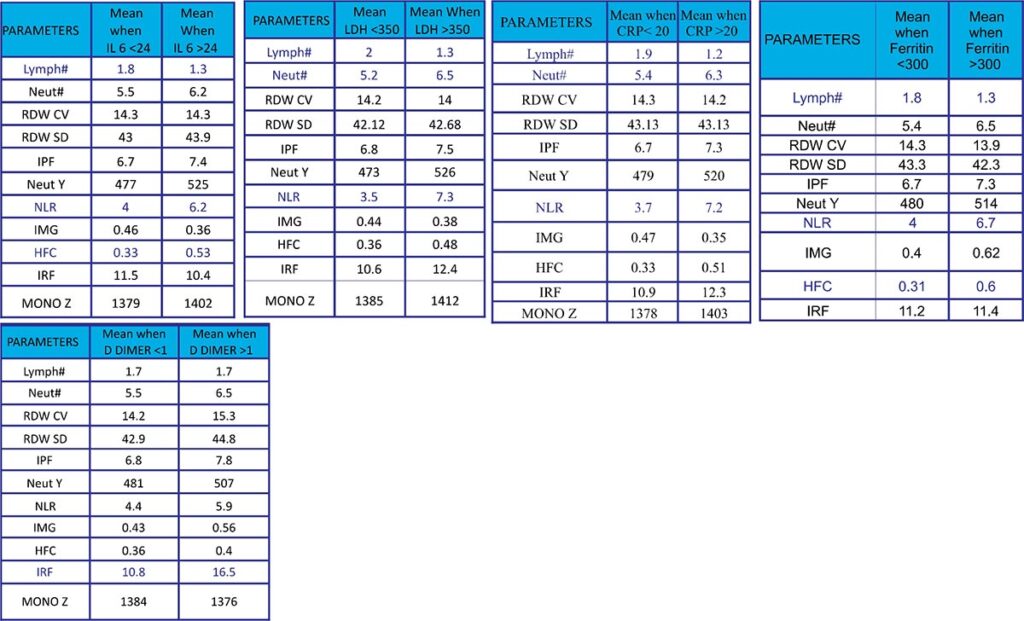
M.B.B.S, M.D.(Path.) MAMC, MBA (HCA) FMS, Delhi, Director – Dr. Suri Lab Pvt. Ltd.
Hematological Parameters and Covid Prognosis
INTRODUCTION
Since CBC testing is among one of the most basic tests ordered for any patient, it would be really helpful if any substantial correlation can be established between present-day established inflammatory markers and parameters available on a hematology analyzer.
Among established inflammatory markers, CRP is the most suitable marker for anticipating the aggravation probability of non-severe covid 19 patients with levels on an average of 20-50 mg/L .
Looking at the above context we tried to evaluate various hematological markers against established markers.
OBJECTIVES :
- To establish a correlation between hematological parameters and known inflammatory markers used in covid-19 positive patients.
- Try to establish the most useful hematological parameters that can be used for covid-19 prognosis.
METHOD :
- Patients who were RT – PCR positive for COVID 19 were selected in the scope of the study.
- Patients who had not got CBC and all five inflammatory markers were excluded from this group.
- Patients were asked for the history of corticosteroid intake and the group was further filtered to include only those who had not taken steroids till then. 507 patients remained at this stage.
- The CBC parameters were measured and an unpaired T-test was performed against each of the inflammatory markers which were divided into two groups. Most of the patients were monitored for the hospital admission.

RESULT :
Absolute Lymphocyte Count, Absolute Neutrophil Count, Neutrophil Lymphocyte Ratio(NLR), and HFC (High Fluorescence Cells) were the best prognostic markers showing excellent correlation with most of the inflammatory markers.
NLR was the most efficacious marker amongst the various parameters analyzed with a cutoff of 4 being a robust cutoff to differentiate mild from moderate and severe covid infections as long as the patients have not taken steroids.
Immature Reticulocyte Fraction showed an excellent correlation with D-Dimer but not with other inflammatory markers. This could be a topic for further research.

